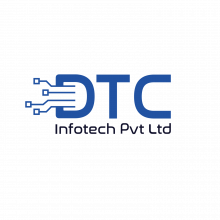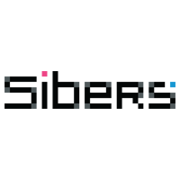Explore Top Flutter Development Companies in United States
Use the advanced filter to find companies near you or refine the results Last updated in: December, 2025
DTC is a DeepTech company specialised in offering digital solutions for Enterprises with Modern Applications, Data and Artificial Intelligence/GenAI.

Cheyenne, United States Head office in: Sweden
Bluell erbjuder kompletta lösningar inom Full Stack Development och anpassad mjukvaru utveckling.
Blocktunix is a leading blockchain development company. Our skilled blockchain developers ensure the delivery of robust blockchain solutions.
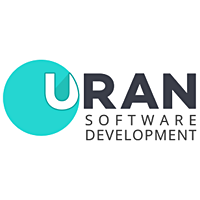
Parker, United States Head office in: Bulgaria
Custom software, app and web development company. ✉ - [email protected]🌎
DH Solutions is a global IT company delivering custom software, AI-driven solutions, and digital transformation services.
Sparking Innovation, Yielding Outcomes!
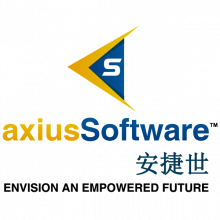
axiusSoftware Verified Company
Charlotte, United States Head office in: India
axiusSoftware is an Award Winning, ISO 9001 & 27001 certified Software Development & Digital Consulting company operating for more than 10 years.

Middletown, United States Head office in: Pakistan
A software development company that brings your tech dreams come true with top-notch website and SaaS solutions!
We help companies digitalize their businesses
Trusted Leader in App Development
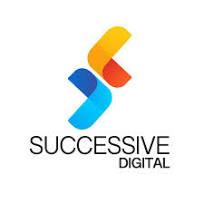
Successive Digital Verified Company
Dallas, United States Head office in: India
Digital Transformation & Software Development Company
Garraje 360° Digital Agency
Services:
Innovative tech firm specializing in blockchain, AI, and mobile app development, empowering businesses with cutting-edge solutions.

Ailoitte - AI Transformation Company Verified Company
Delaware, United States Head office in: India
Ailoitte is India's fastest growing AI Transformation and App Development Company, Empowering businesses to innovate and grow.

Delaware, United States Head office in: India
Mobile, Web & eCommerce Software Development Company

iProgrammer Solutions Private Ltd. Verified Company
Georgia, United States Head office in: India
Your Programming Partner

Capital Numbers Infotech Verified Company
San Francisco, United States Head office in: India
Hire In-Demand Skills, On-Demand
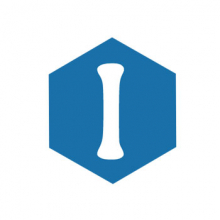
Somerset, United States Head office in: India
Inventcolabs is a leading-edge IT services company, offering platform to hire dedicated developers at different hiring models.
Bringing Your Ideas To Life You Explain, We Build
Taking the Risk Out of IT Innovation
We are a dynamic IT consulting and service company driven by passion and innovation.

Dot Com Development Verified Company
Phoenix, United States Head office in: United States
Custom Enterprise Grade Software Development Services On-Time, On-Budget🏆Solutions Exceeding Expectation. WEB. | MOBILE. | CLOUD. | AI.

Los Angeles, United States Head office in: Nigeria
We use technology to create undeniably brilliant work for companies with taste.
Services:
Filter Flutter Development Companies in United States by Cities
Find the right tech company near you or from a specific city. Some of the best companies might be located in smaller cities.
Find more Flutter Development companies around the world
TechBehemoths is the world's most advanced and user-friendly platform to match IT Companies with real clients without hustle.
ICT in the United States: General Profile and Insights
The United States has probably the most advanced software and information technology (IT) services industry in the world. More than 40 percent of the $5 trillion global IT market is in North America, primarily the United States. The industry accounts for $2.1 trillion of U.S. value-added GDP (more than 10 percent of the national economy) and 702.276 jobs. According to CompTIA, there are more than 700,000 software and IT services companies in the United States.
The average net salary of a web developer in the US is around $82,532 annually. On the other hand, the hourly rate is nearly $33.47, which makes it one of the best-paid jobs in the world within the IT industry.
Why Should You Work With American Web & Software Development Companies
U.S. software development companies operate in a mature, harmonized market and have a reputation for producing reliable and effective solutions that quickly accelerate to the marketplace. International companies in the industry have shown interest in the U.S. market because of its strong intellectual property rights laws and enforcement. U.S. companies lead the world's packaged and custom-software markets and are competitive in nearly all other market segments with a stable overseas market share.
What You Should Be Aware of When Working With a US-based ICT Company
Having a large IT market has both advantages and disadvantages. While offering a wider variety of US IT companies to choose from is one of the biggest advantages the U.S. has to offer, the challenge for potential clients and partners of the U.S.-based web & IT companies is that the industry development is not equally distributed across all states and cities. For example, many tech companies are relocating to Texas from Silicon Valley. This is why it’s good to have in mind the most important U.S. IT hubs and focus on choosing the most suitable one depending on your needs.
How Reliable are US-based IT Companies
Based on a report delivered by CompTIA in 2020, which is still relevant for 2025, the changes in the global IT market that make competition in this area tougher, U.S. companies will focus more on three development pillars:
- Training and Certification of professionals in their existing tech skills
- Training and Certification of professionals in new tech skills
- Career growth and project management.
This means that the market is saturated with the workforce, and there is a small probability that companies will increase their hiring rate for new professionals. However, intensive and extensive skills development of U.S. tech professionals will increase the capacity and attractiveness of U.S. IT companies and web agencies. Additionally, this will improve the already well-developed abilities to deliver high-end products and services in the IT field.
How Does the US IT Industry Relate to the Neighboring Countries
Considering that the US has probably the most developed IT infrastructure, the industry will keep its position for at least 3 years. On the other hand, the rising numbers of IT companies from Canada and Mexico come in contrast with what US companies have to offer. In other words, clients still have to choose between US companies and neighboring countries as the offers differ in quality and ways of executing projects.
Overall, the US IT industry is in leading positions in different sectors, and combined with an authentic business culture, will probably continue to keep its attractiveness. Although companies from the U.S. are flexible and are always adjusting to market requirements, the global market still remains unpredictable, which may lead to significant changes in the future.
US Tech Industry Outlook for 2025 and Beyond
The US is still leading the world with its cutting-edge technologies, despite some narratives. The expected revenue for the market of IT Services in the US is $563.94 billion by 2025, with a CAGR of 3.73% from 2025-2030, according to Statista. The biggest segment of this segment is IT Outsourcing, reaching $218.02 billion by the same year. This sector has an increased demand for solutions in cloud computing and cybersecurity services.
Artificial Intelligence will influence the tech sector in the US, with only the Generative AI contribution to GDP of $7 trillion in the next 10 years, and it can save up to $1.4 billion for the federal government.
The US is keeping its position in scientific research, graduate education, AI firms, and competitiveness. The US tech sector’s future focuses include AI, increasing cybersecurity & cloud computing.
What is Flutter and what are its benefits for your projects?
Flutter is an open-source UI (User Interface) framework developed by Google for building natively compiled applications for mobile, web, and desktop from a single codebase.
It was officially introduced by Google in May 2017, although its development began earlier as an internal project named "Sky." It aimed to address challenges in cross-platform mobile app development by providing a consistent and high-performance framework for building native-like apps on iOS, Android, and other platforms. Flutter has since gained significant traction and popularity in the developer community.
Flutter has seen rapid adoption, thanks to its key advantages, such as a single codebase for multiple platforms, a rich set of pre-designed widgets, and fast development cycles. It has found use in various industries, including mobile app development, web development, desktop applications, and even embedded systems. Some notable apps developed with Flutter include Alibaba, Google Ads, eBay Motors, and more. Its usage continues to grow, and it has a strong developer community and ecosystem.
Flutter is versatile and suitable for a wide range of projects:
- Mobile Apps: Flutter is commonly used for developing mobile applications, including consumer apps, business apps, e-commerce apps, social media platforms, and more. It provides a native-like experience on both Android and iOS.
- Web Apps: Flutter can be used to build web applications, allowing developers to target browsers as well. This is still in the experimental phase (as of my knowledge cutoff date), but it shows promise for building responsive web interfaces.
- Desktop Applications: Flutter supports desktop platforms like Windows, macOS, and Linux. Developers can create desktop applications for various purposes, including productivity tools and utilities.
- Embedded Systems: Flutter can be used to create user interfaces for embedded systems and IoT (Internet of Things) devices, providing a consistent look and feel across different hardware.
- Custom UI Components: Flutter is often used to build custom UI components and widgets that can be integrated into larger applications, providing a cohesive design language.
Hourly rates for Flutter developers can vary significantly based on factors like location, experience, project complexity, and demand. On average, Flutter developers may charge anywhere from $25 to $150 or more per hour. Rates tend to be higher in regions with a higher cost of living, such as North America and Western Europe, and lower in regions with lower living costs, such as Asia and Eastern Europe.
It's important to note that more experienced and specialized Flutter developers with a strong track record may charge higher rates. Additionally, some developers or development agencies may offer fixed-price contracts for specific Flutter projects, which can vary widely based on the project's scope and requirements.
When hiring Flutter developers, it's essential to consider factors like their expertise, portfolio, and the complexity of your project. Getting multiple quotes and conducting interviews can help you determine a reasonable rate and find the right developer or team for your specific needs.
We have also written an extensive research of what skills you should be looking for when hiring Flutter developers.
